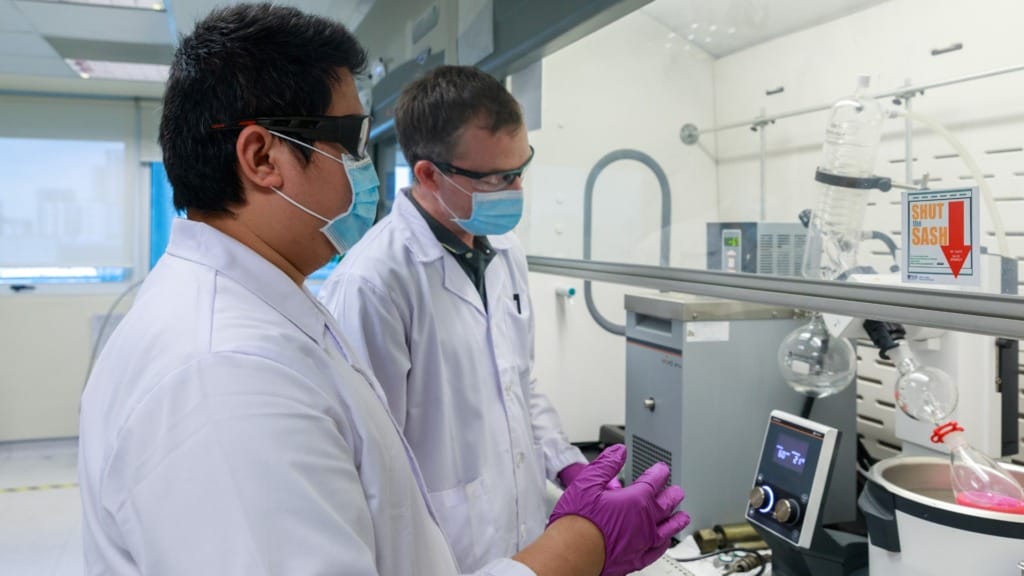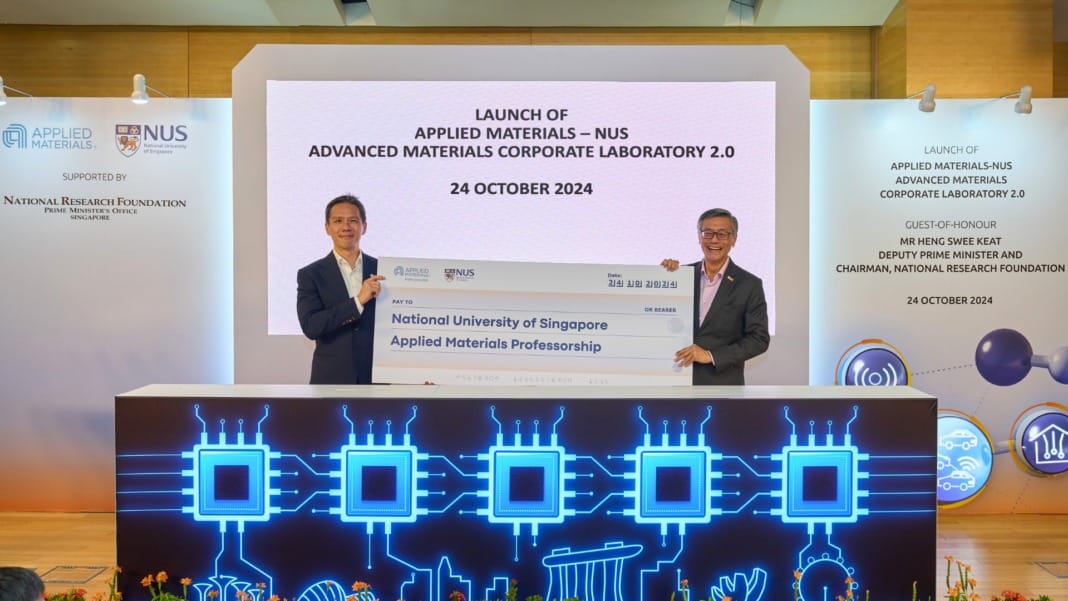Applied Materials South East Asia Pte. Ltd. and the National University of Singapore (NUS) announced the expansion of their semiconductor research collaboration. The Applied Materials-NUS Advanced Materials Corporate Lab, which was originally established in 2018, will be enhanced with a larger, state-of-the-art cleanroom equipped with the latest semiconductor process technology. This initiative is supported by the National Research Foundation (NRF) under Singapore’s Research, Innovation, and Enterprise 2025 (RIE2025) plan.
In addition to the upgraded facilities, the partnership will introduce new programmes aimed at developing a strong talent pipeline for Singapore’s semiconductor industry. This phase also includes the establishment of the Applied Materials Professorship at NUS, which will focus on attracting leading experts in semiconductors, materials science, and related technologies.
Deputy Prime Minister highlights success of industry-academia collaboration
The new phase of the Corporate Lab was officially launched at a ceremony at NUS, where Deputy Prime Minister Heng Swee Keat, also the Chairman of NRF, served as the Guest-of-Honour. The event drew a significant number of attendees from the industry, research community, and government agencies, reflecting the importance of this collaboration to Singapore’s growing semiconductor ecosystem.
Professor Tan Eng Chye, President of NUS, praised the partnership’s achievements. He remarked, “When NUS and Applied Materials first established the Corporate Lab six years ago, we laid the foundation for a collaboration that has since yielded remarkable success. Several of the innovations developed here have progressed from the research stage to the scale-up phase, paving the way for real-world applications that can benefit society.” He added that this next chapter will further semiconductor research and inspire the next generation of innovators to push the boundaries of technology.
Dr Satheesh Kuppurao, Group Vice President of Business Development and Growth at Applied Materials, Inc., echoed these sentiments, saying, “The Advanced Materials Corporate Lab at NUS is a prime example of how industry-academia collaboration can accelerate the discovery and transition of innovations into commercial applications.” He pointed out that the joint work between NUS and Applied Materials has led to numerous patents in the areas of chemistry, semiconductor processes, and hardware design. He also highlighted that the collaboration has sponsored scholarships, supporting Singapore’s next generation of talent.
Expanded capabilities to drive semiconductor innovation

The Applied Materials-NUS Advanced Materials Corporate Lab, housed at NUS’s College of Design and Engineering and the Faculty of Science, is a hub for world-class, multidisciplinary research and development. Its core focus is to discover new materials and processes that can be transferred quickly into commercial semiconductor applications. With the expansion, the lab will feature a new cleanroom with cutting-edge materials synthesis and characterisation equipment. This will allow Applied Materials and NUS to tackle complex semiconductor manufacturing challenges, particularly in integrated processes and interface engineering.
The next phase of the collaboration will strengthen the research capabilities at NUS, positioning the university as a leader in microelectronics research. It will also encourage interdisciplinary collaboration, promoting innovations that are expected to shape the future of the semiconductor industry.
In addition to the technological advancements, the Corporate Lab will introduce educational and talent development programmes. These initiatives will provide undergraduates, postgraduates, and professionals with opportunities to develop their expertise in microelectronics, advanced materials, and process engineering. These efforts will help ensure that Singapore remains competitive in critical technology fields and support the country’s long-term economic growth.
Applied Materials sees this collaboration as part of its broader “Singapore 2030” plan, which aims to enhance the company’s R&D capabilities, manufacturing capacity, and workforce development in Singapore.





